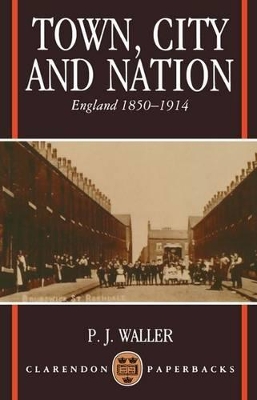Clarendon Paperbacks
1 total work
By the outbreak of the First World War England had become the world's first mass urban society. In just over sixty years the proportion of town-dwellers had risen from 50 to 80 per cent, and during this period many of the most crucial developments in English urban society had taken place.
This book provides a uniquely comprehensive analysis of those developments - conurbations, suburbs, satellite towns, garden cities, and seaside resorts. The author assesses the importance of London, the provincial cities, and manufacturing centres; he also examines the continuing influence of the small country town and `rural' England on political, economic, and cultural growth. In many respects, P. J. Waller's book is a general social history of late nineteenth and early twentieth-century
England, seen from an urban perspective. It is both scholarly and immensely readable.
This book provides a uniquely comprehensive analysis of those developments - conurbations, suburbs, satellite towns, garden cities, and seaside resorts. The author assesses the importance of London, the provincial cities, and manufacturing centres; he also examines the continuing influence of the small country town and `rural' England on political, economic, and cultural growth. In many respects, P. J. Waller's book is a general social history of late nineteenth and early twentieth-century
England, seen from an urban perspective. It is both scholarly and immensely readable.
